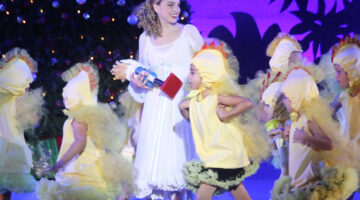Nelson Mandela Lives!
By Mark Howell
In our household we recently Netflixed a movie that had all the exaltation of the “Woodstock” movie and more.
“Amandla: A Revolution in Four-Part Harmony” is a music documentary made quite a while before Nelson Mandela died. Directed by Lee Hirsch, a filmmaker from New York, it won the Audience Award and the Freedom of Expression Award at the 2002 Sundance Film Festival.
Amandla means power and the title refers to the part played by protest songs in the non-violent revolution that, just a few years ago, brought an end to apartheid, the racial creed comparable only to Nazism.
Apartheid began with Prime Minister Verwoerd’s racial segregation law in 1948 that he claimed was a “policy of good-neighborliness.” For almost 50 years, black citizens in South Africa were stripped of every basic human right, “legally” arrested without provocation, tortured and randomly murdered — all while the governments of the world turned a blind eye.
Hirsch spent nine years in South Africa putting together newsreel footage, video clips, old photos plus interviews with musicians and activists to show how song led the revolt against oppression.
The film includes footage of the Sharpeville massacre and the Soweto uprising and there are interviews with white riot policemen and executioners. It all leads, ultimately, to the release and triumphant election of Mandela to the presidency in 1994. At long last, blacks and whites could live together in a free South Africa.
Why our allusion to “Woodstock”?
In a haunting, climactic sequence, Sophie Mgcina sings to a stadium packed with people her song for black domestic workers: “Madam Please, before you ask me if your children are fine / Ask me when I lost all mine.” The mood then swings as Mandela, freshly released from those incarcerated decades, and his friend Miriam Makeba, fresh from her exile in the United States, dance together while surrounded by 20,000 singing, swaying free people in a celebration that rips the shadows from the mind, flooding the eye with tears. Then comes a gloriously mystic anthem about Mandela himself that is not just jazz, not only the blues, not merely bebop or rap but a kind of inspired yelling, a counter-tenor of ecstasy that’s truly heaven-sent. We have never, ever seen anything quite as sweetly wild as the conga led by Mandela and Makeba.
Then — no dry eye for you — President Mandela sings Masekela’s “Bring Him Back Home.”
Meanwhile we have news of the death of Helen Joseph, a white dissident who was repeatedly detained and harassed by the South African government in her long struggle against apartheid. She was 87.
In the years immediately after World War II, her opposition to the racial policies of her adopted land put her way ahead of most other white foes of racial separation.
For more than three decades, the South African government placed the often ill but ever-defiant Mrs. Joseph under various forms of house arrest and banning orders that prohibited her from receiving more than one visitor at a time.
This year, the month of August will have five Fridays, five Saturdays and five Sundays.
This phenomenon occurs just once every 823 years. The Chinese call it “Pocketful of money.”
We call it “High five!”
Quote for the Week:
“Whether the world is empty or not, whether it exists or not, doesn’t matter. Take away your opinion, then what is left? Take away your opinion — your condition, situation — then your mind is clear like space. Clear like space means clear like a mirror. A mirror reflects everything: the sky is blue, tree is green, sugar is sweet.”
— Zen Master Seung Sahn in “Boom!”
[livemarket market_name="KONK Life LiveMarket" limit=3 category=“” show_signup=0 show_more=0]




No Comment